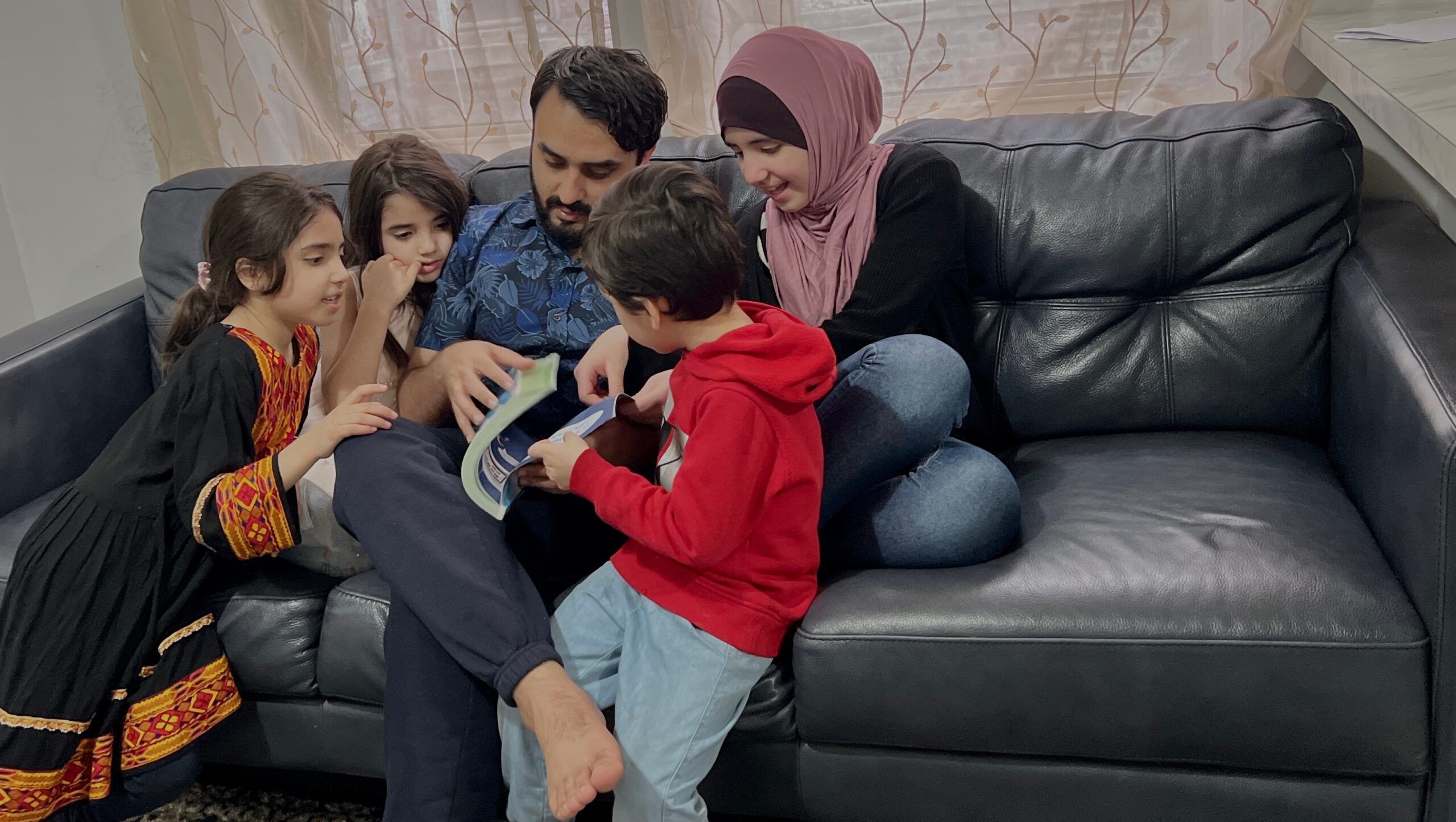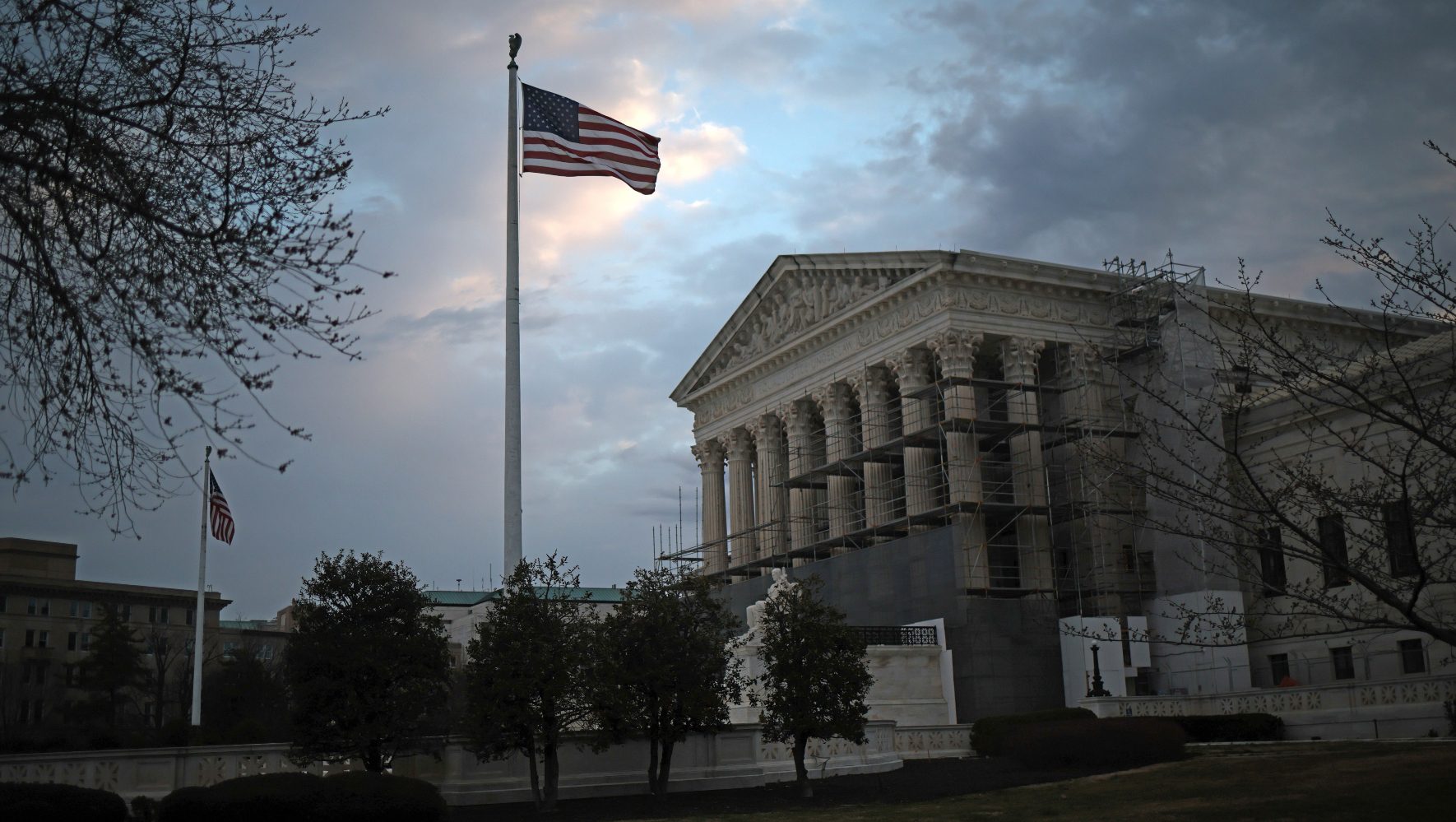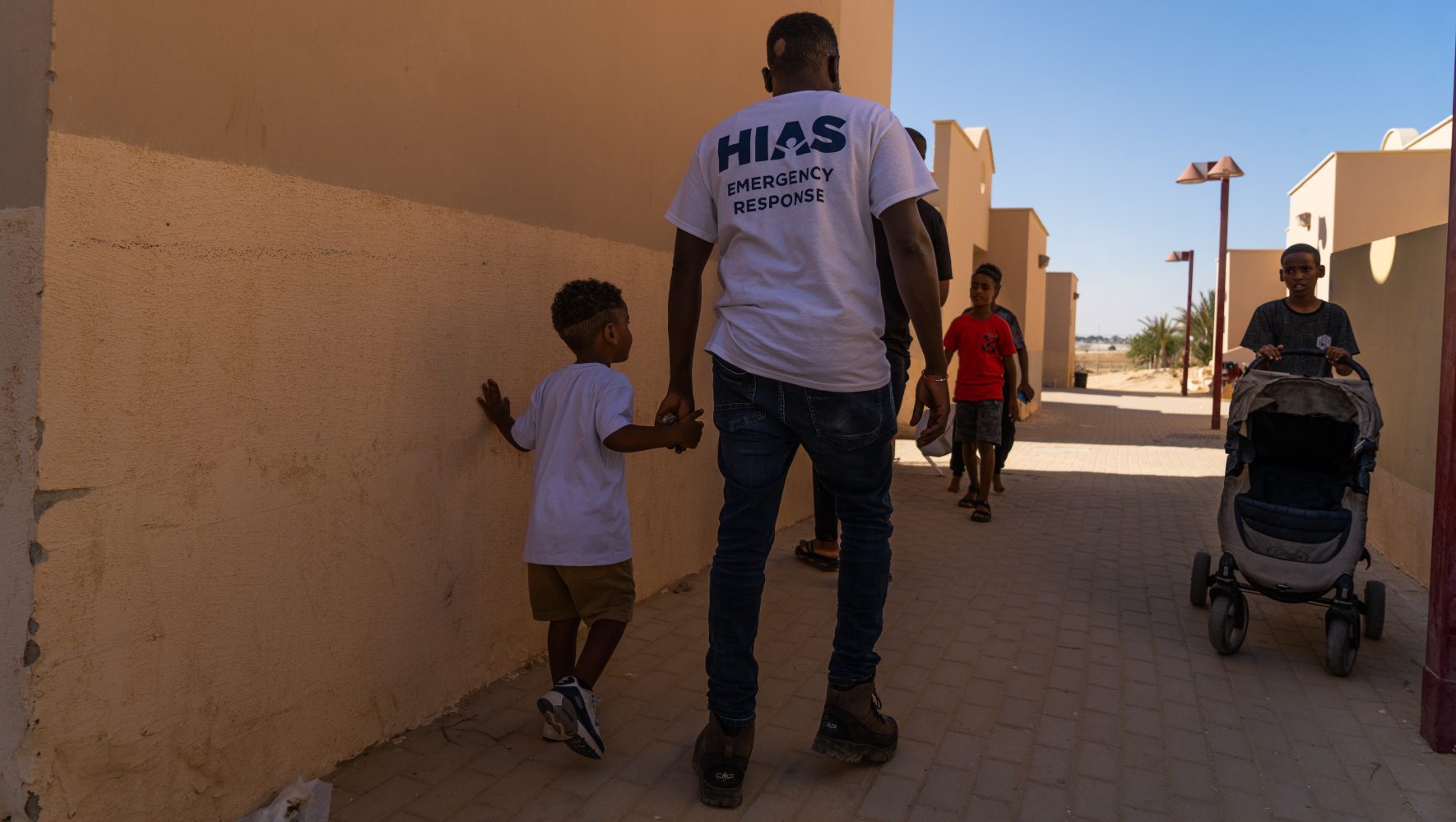The Plight of Ukrainian Refugees Highlights the Problem of Title 42
By Dan Friedman
Mar 24, 2022

A person from Ukraine hands passports to U.S. Customs and Border Protection officers at the San Ysidro Port of Entry in Tijuana, Mexico before crossing into the United States, March 22, 2022. U.S. Authorities have recently been allowing some Ukrainian refugees to enter the U.S. at the Southern border.
(Mario Tama/Getty Images)
Kate Clark, the senior director of immigration services at HIAS partner Jewish Family Service of San Diego, was at her desk when the shelter called to say a family of Ukrainians had just arrived. A mother, Maryna, and two small daughters had just come from the border crossing at San Ysidro — 6,000 miles and a week of grueling travel from their home just outside Kyiv.
Although most of the millions of Ukrainians escaping their war-ravaged country are heading to Poland and other nearby countries, a number want to head for the United States. Most choose it because they have friends, families or welcoming communities waiting for them in the United States.
Getting to the safety of loved ones in America, though, is deeply problematic. Even Maryna, with a friend in San Diego and her grandmother’s cousin in Sacramento had no guarantees of getting in. Being given the opportunity to seek asylum and ending up at the San Diego Rapid Response Network migrant shelter operated by JFS was about the best they could hope for — the government has not been releasing asylum seekers directly to sponsors for a while, so if she and her family hadn’t stayed at the shelter they would have been left on the street with scant resources.
Despite the calls of HIAS CEO Mark Hetfield and others, and the announcement that the Biden administration has agreed to welcome up to 100,000 Ukrainians, the U.S. is still, essentially, closed to asylum seekers. Most Ukrainians are not able to fly to America directly, though they can apply online for a Mexican tourist visa and seek asylum at the border. That's because, unlike any other group, Ukrainians are being granted exemptions to Title 42, a World War II-era public health law originally meant to stop contagious disease from spreading to the U.S.
In a move that Naomi Steinberg, HIAS’ vice president of U.S. policy and advocacy, says “highlights the basic injustice of Title 42 itself,” Ukrainians have been singled out for special treatment ahead of other asylum seekers fleeing violence and persecution. In a March 11 memorandum to his officers, Matthew Davies, head of Customs and Border Protection, authorized “case-by-case” exemptions of Ukrainian refugees — a sentiment echoed by Alejandro Mayorkas, the Secretary of the Department of Homeland Security.
Despite their trek, Maryna and her daughters aged 8 and 12 were lucky. They took a train from their home about 15 miles outside Kyiv to the border with Hungary where they were met by volunteers giving out food and hygiene items. Transport was also available and they took a free ride to Budapest, from where they were able to fly to Munich and then to Tijuana in Mexico. But, after all that, a strict application of Title 42 at the U.S. border would have seen CBP turn them all away automatically.
The Trump administration initially hoped to implement Title 42 in 2019, ostensibly on the grounds of preventing mumps and the flu from spreading in the United States. COVID-19 gave the momentum to invoke the law and this week, on the second anniversary of CDC director Robert Redfield signing it over the advice of his staff, it remains a tenacious anti-migrant measure. Despite several attempts to repeal it, Title 42 remains in force and has been the reason for over a million “expulsions” at the southern border since the inauguration of President Biden in January 2021.
Eager to tell her story, Maryna and family met with NPR reporter Max Rivlin-Nadler on one of her first days in San Diego. Now staying with her friend in the city, Maryna spent the better part of a day explaining exactly how rapidly the situation had worsened. It had become suddenly frightening: troops appeared on the streets and her home became a ghost town. When she saw the sky turn red far away one evening, she and her husband decided she should take the girls and leave.
While she told the reporter her harrowing tale, in her native Russian, Clark played with the daughters, trying to distract them from revisiting the events of the last few days with crayons and bubbles. A couple of brightly-colored activity backpacks helped. The three of them had left almost everything behind, so the JFS team made sure the refugees had lunch while they were talking and that Maryna’s family took leftovers and groceries back to her friend’s house that evening.
Anecdotal evidence appearing in the media suggests that since the beginning of the war only a handful of Ukrainians like Maryna are being allowed past the initial border to seek asylum. This is the normal process for migrants who, since March 20, 2020, have been stopped by Title 42.
Davies and Mayorkas’ comments that officers should consider exemptions to Title 42 such as the one Maryna received were prompted by the public’s overwhelming sympathy for Ukrainian refugees. But the right for individuals to seek asylum is mandated by international agreements to which the U.S. is a signatory, so the fact that Maryna even needed a special exemption for her to seek asylum illustrates for Steinberg why Title 42 should be completely abolished.
“Since Title 42 was enacted two years ago, we have urged for its repeal," Steinberg said. "It has no proven public health impacts, but has instead resulted in the expulsions of people who are only trying to exercise their legal right to seek safety. We continue to advocate for the Biden administration to terminate this policy and to stop pushing back asylum seekers at the U.S.-Mexico border.”
For HIAS, Maryna’s plight exemplifies how the United States is able to shoulder responsibility for fleeing Ukrainians. As HIAS officials have forcefully noted in different venues, the United States has a responsibility to provide legal status and resettle Ukrainians, especially those with friends or family already here.


